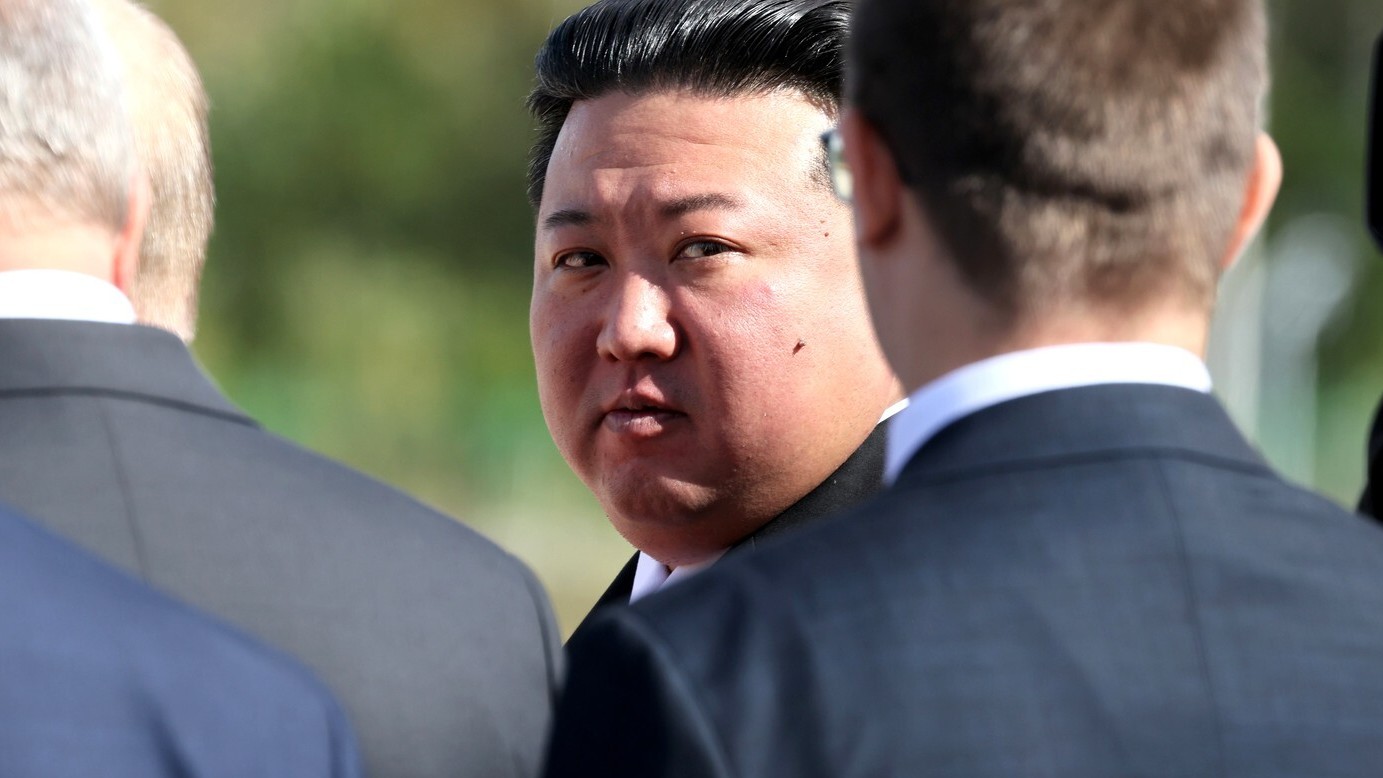Kim Jong Un at 40: the distinctive leadership style of the North Korean dictator
Ruthless at home yet pragmatic abroad, Kim is more secure than when he came to power over a decade ago

A free daily email with the biggest news stories of the day – and the best features from TheWeek.com
You are now subscribed
Your newsletter sign-up was successful
As Kim Jong Un marks what is believed to be his 40th birthday, the North Korean leader can reflect on over a decade in power in which he has consolidated his regime at home and won important allies abroad through a leadership style best described as ruthless pragmatism.
When he assumed the title of Supreme Leader following the death of his father Kim Jong Il in 2011, some observers speculated that "a 27-year-old with no leadership experience would have to share power with guardians or be guided by regents", said Foreign Policy. Or that the Swiss-educated ruler "would implement economic and political reforms that would change the direction of the secretive authoritarian state".
More than a decade later, neither scenario has come to pass. Instead "he's purged his internal opponents, he's built a formidable nuclear weapons programme, he has tightened his control over society and Russia and China's growing enmity with the US is playing right into his hands", Peter Ward, a fellow at the University of Vienna's European Centre for North Korean Studies, told the Financial Times (FT). Against all the odds, the regime is "much more secure than when Kim came to power in 2011".
The Week
Escape your echo chamber. Get the facts behind the news, plus analysis from multiple perspectives.

Sign up for The Week's Free Newsletters
From our morning news briefing to a weekly Good News Newsletter, get the best of The Week delivered directly to your inbox.
From our morning news briefing to a weekly Good News Newsletter, get the best of The Week delivered directly to your inbox.
A 'ruthless openness' at home
"To the rest of the world, he is almost a figure of ridicule," said The Telegraph. Yet, since 2011 Kim's "ruthless leadership qualities" have established "his unchallenged authority through a series of bloody purges", including the execution of his uncle and mentor and the public assassination of his half brother, The New York Times reported.
While such acts against perceived rivals are nothing new in North Korea, one feature of Kim's leadership style that sets him apart from his predecessors is "his openness, including about his ruthlessness", said Foreign Policy.
He successfully navigated his country through the pandemic, using it as the pretext to unleash a crackdown on "words, acts, hairstyle and attire of young people" and a fresh ban on unsanctioned videos, broadcasts and speaking in a "South Korean" style. Owning a radio risks years in prison, and access to the open internet is blocked, allowing only a heavily censored state intranet.
A sometimes capricious but rational "third-generation CEO", Kim is a man prepared to be brutal domestically, said Andrei Lankov, professor of history at Kookmin University in Seoul, while also building a nuclear weapons deterrent, to protect himself and his family from foreign invasion.
A free daily email with the biggest news stories of the day – and the best features from TheWeek.com
"His goal is very simple – to die a natural death in his palace, decades later. He wants to stay in power. He understands… if he loses power, very soon he will probably lose his life and everyone who he loves," Lankov said. "He is protecting his life, not lifestyle."
A 'pragmatic, rather than ideological, approach' abroad
Kim has adopted a "pragmatic, rather than ideological, approach", said Foreign Policy – especially when it comes to international relations. Here he has shown a preference for leader-to-leader diplomacy and an "ability to adjust to changing geopolitical realities and balance aggression with compromise", reported The Times.
"Contrary to common perception," said The Japan Times, "Kim is anything but a madman bent on nuclear war." He has "steeled himself over the years, playing a calculated, long-term strategy aimed at securing his rule", said the paper, and "building up his country's military in response to what he views as threats to his regime".
Looking back over his 13 years in power, the millennial dictator has "every reason to feel content", said the paper. He survived Donald Trump, the sanctions and the pandemic, said Lankov. "Who in his position would not feel triumphant?"